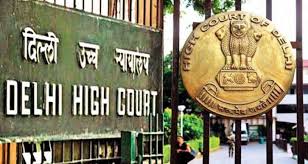NEW DELHI: The Delhi High Court on Friday emphasized the necessity of determining the status of predicate offenses before allowing proceedings under the Prevention of Money Laundering Act (PMLA) to move forward.
The decision directly affects two high-profile cases involving Congress MP Karti Chidambaram—the Aircel-Maxis deal and the Chinese Visa scam.
Justice Ravinder Dudeja, in an order dated April 9, directed the Special Court to defer arguments on the framing of charges in both cases until a later date, beyond the next scheduled hearing in the High Court. This step follows a petition by Chidambaram, who urged the court to postpone proceedings under the PMLA until the trial court adjudicates the framing of charges in the predicate offenses.
The crux of the argument lies in a fundamental principle of law: proceedings under the PMLA must be based on a confirmed scheduled offense, also known as a predicate offense. Senior Advocate Sidharth Luthra, representing Chidambaram, argued that in the absence of formal charges or conviction in the scheduled offense, continuing the money laundering case would be premature and legally untenable.
“If the petitioner is discharged in the predicate offense, the charge of money laundering cannot be sustained,” Justice Dudeja noted in the order, signaling the significant implications such a discharge could have on the PMLA case.
Chidambaram’s petition came in response to the March 28 order of the trial court, which had rejected
The Aircel-Maxis case involves allegations that Karti Chidambaram, through his firm Advantage Strategic Consulting Pvt. Ltd. (ASCPL), benefited from irregularities in Foreign Investment Promotion Board (FIPB) clearances, as first outlined in an FIR by the Central Bureau of Investigation (CBI).
The Enforcement Directorate (ED) later filed a case under PMLA based on these allegations.
In the Chinese Visa scam, Karti is accused of receiving Rs 50 lakh in kickbacks from a senior executive of Talwandi Sabo Power Ltd. (TSPL). The amount was allegedly paid to secure illegal visa approvals for Chinese workers needed at a power plant site in Punjab. The ED launched its probe in 2022 following a separate CBI FIR.

